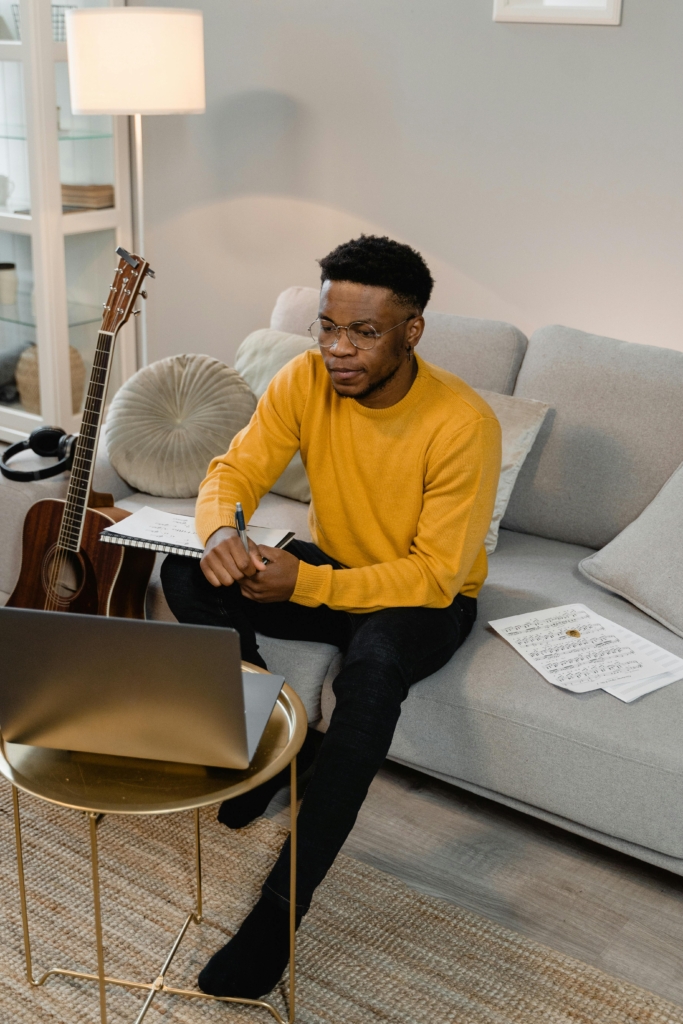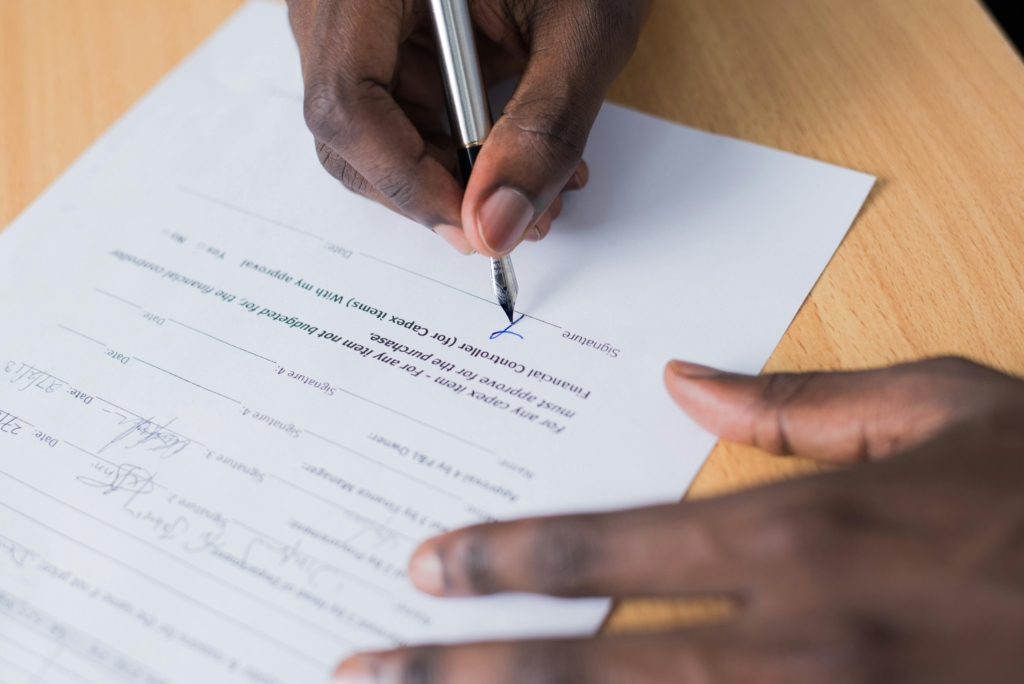Apartment hunting in Ghana can break your spirit even before you pick up the keys.
One moment you’re filled with hope; the next, you find yourself in a dusty, unfinished room with no water, no light, facing a landlord asking for two years’ rent upfront.
If you find yourself within the 46% of Ghanaians who rent, you know too well how frustrating, exhausting, and time-consuming apartment hunting can be, especially for first-time renters. From agents who collect commissions and disappear to landlords showing half-finished rooms with no water or light, yet demand sky-high rent, renting can feel discouraging. But what if it didn’t have to be that way?
In this step-by-step guide, we will walk you through how to rent a home in Ghana, from your initial search to finally holding the keys to a place you love without any unnecessary stress or surprises.
Let’s get started:
Step 1: Know What You Want.
The trick to successfully renting an apartment lies in knowing what you want. So, before you start hopping from one house to the other or contacting agents, take a moment to define what you’re looking for.
Although it may seem simple and obvious, having a clear idea about what you want can save you time, stress, and money when looking for a house to rent. By asking yourself questions like “Where do I want to live?”, “What type of home suits me?”, and “What’s my budget?” You can avoid pursuing listings that don’t meet your needs.
When planning your monthly budget, be realistic about all expenses, including advance payments, utilities, and agent fees. Consider the location of your house based on its proximity to work, school, transportation, and nearby amenities. Decide whether you prefer a shared apartment, a single room, a chamber and hall, or a self-contained unit. Reflect on your needs for privacy, space, and lifestyle when making your choice.
Neglecting this essential step can lead to important oversights.
Step 2: Start Your Search

Now that you know what you’re looking for, it’s time to start your search. This step can feel overwhelming sometimes, but if you remain organized and focused, you’ll avoid unnecessary stress.
Start by exploring trusted rental platforms such as Prime Listings Ghana. These platforms provide verified listings, clear descriptions, and often include photos and reliable contact details. Additionally, you can use real estate apps or ask friends and coworkers for personal recommendations.
As you browse, take note of listings that meet your criteria. Record details like price, location, contact information, and any pros or cons you observe. This will help you compare options more easily and avoid confusion later on.
Be aware of red flags, such as listings without photos, prices that appear “too good to be true,” or agents who refuse to show you the property before asking for a fee. Trust your instincts.
Step 3: Contact the Agent or Landlord
Once you’ve found a few listings that match what you’re looking for, the next step is to reach out and ask the right questions. This stage can make or break your rental experience, so it’s important to approach it with clarity and confidence.
Verify the key details such as rent amount, payment terms, and inclusions such as water, electricity, and internet. Don’t hesitate to ask straightforward questions because you are making a financial commitment and deserve clarity.
Ask whether there is a tenancy agreement in place and if you can see the apartment before making any payments. A genuine agent or landlord should be open to this request.
Pay attention to their responses. Are they professional, clear, and respectful? Or are they unclear and in a hurry to collect payment? Their current communication style may indicate how they will treat you as a tenant.
Always keep a written record of your conversations, especially if you communicate via WhatsApp or email. This documentation could be helpful later on.
Step 4: Schedule a Viewing

Seeing the apartment in person or through a virtual tour is one of the most crucial steps in the rental process. Photos can be edited, cropped, or outdated, and what you see online may not accurately represent the property’s actual condition.
When scheduling a viewing, try to go during the day so you can see things clearly and get a feel of the neighborhood. During your visit, take note of essential factors such as water flow and pressure, electrical connections and lighting, the condition of doors, windows, and locks, any signs of pests or mold, ventilation, and the amount of natural light.
Feel free to take photos or videos to compare options later. Go with a trusted friend or family member if possible; having two sets of eyes is often better than one.
If the agent or landlord is unwilling to let you see the apartment before you make a payment, consider that a red flag. Never pay for a place you haven’t seen.
Step 5: Ask the Right Questions
Viewing the apartment is important, but asking the right questions is what helps you avoid unpleasant surprises after moving in. This step is often overlooked, yet it’s where most renters get blindsided.
Here are a few key questions to ask before you decide to commit:
1. What are the payment terms?
Is the rent paid monthly, quarterly, or yearly? Are any advance payments required, and if so, how many months’ worth?
2. Who pays for utilities?
Clarify who is responsible for electricity, water, waste collection, and internet bills. Don’t make assumptions, as this can vary from property to property.
3. Who handles repairs and maintenance?
If something breaks, such as a faucet or ceiling fan, will the landlord cover the cost, or is it your responsibility? It’s best to agree on this upfront.
Asking these questions shows your seriousness and helps in making an informed decision. A good landlord or agent will not be offended; they will appreciate your diligence.
Step 6: Make Payment Safely
After confirming all the details and feeling confident in your choice, it’s time to discuss money. However, this is also when many renters in Ghana are scammed, so exercise extra caution.
Don’t feel rushed to make a payment, even if the landlord or agent pressures you by saying things like, “Other people are interested.” A reliable agent or landlord will allow you time to review and sign the agreement before exchanging money.
If you’re ever uncertain, take a moment to consult someone you trust about the situation. Delaying is preferable to losing money to a scam.
Step 7: Sign the Tenancy Agreement

This step is not merely a formality; it serves as your legal protection. A tenancy agreement sets out the terms and responsibilities for you, the tenant, and the landlord. If a disagreement arises in the future, this document will serve as your support.
Before signing any document, take time to read through the entire agreement. It may seem long or filled with legal terminology, but understanding every part is important.
Here’s what to look out for:
– Rent amount and payment schedule.
– Duration of the tenancy (e.g., 6 months, 1 year).
– Notice period for ending the agreement.
– Who is responsible for maintenance and repairs?
– Penalties for late payment or breaking the lease early.
Don’t hesitate to ask for clarification or request changes if something doesn’t feel right to you. Also, ensure that both you and the landlord sign the agreement, and that each of you receives a copy.
Taking these steps helps prevent misunderstandings and gives you peace of mind, knowing that you’re protected as a tenant.
Step 8: Prepare to Move In

After you sign the agreement and complete the payment, it’s time to prepare for the exciting part: moving into your new home! Before you carry your first bag across the threshold, take a few final steps to ensure a smooth transition.
Make sure to clean the space thoroughly if the landlord hasn’t done so already. Sweep, mop, and disinfect all surfaces to help it feel like your own from day one. Next, activate essential utilities if they are not already set up. This may include electricity (especially if there’s a prepaid meter), water supply, internet connection, and waste collection services.
Before you settle in, check for any last-minute issues, such as leaking taps, broken electrical sockets, or missing keys. Report any problems immediately to the landlord or caretaker. Finally, inform close family members or trusted friends of your new address, especially if you’re moving alone or into a new neighborhood. Remember, safety and communication are vital.
Conclusion
Your experience renting a home in Ghana doesn’t have to be stressful, risky, or overwhelming. With the right steps and a clear plan, you can find a space that suits your needs, budget, and lifestyle, without all the stress and surprises.
Understanding your desires, asking the right questions, and insisting on a written agreement can lead to a smoother and safer rental experience. Being informed is your greatest advantage.
And if you’re ready to make that next move? Start with verified listings on Prime Listings Ghana or contact us today—renting smart starts with us. We’re here to help you rent smart, save time, and live better.





